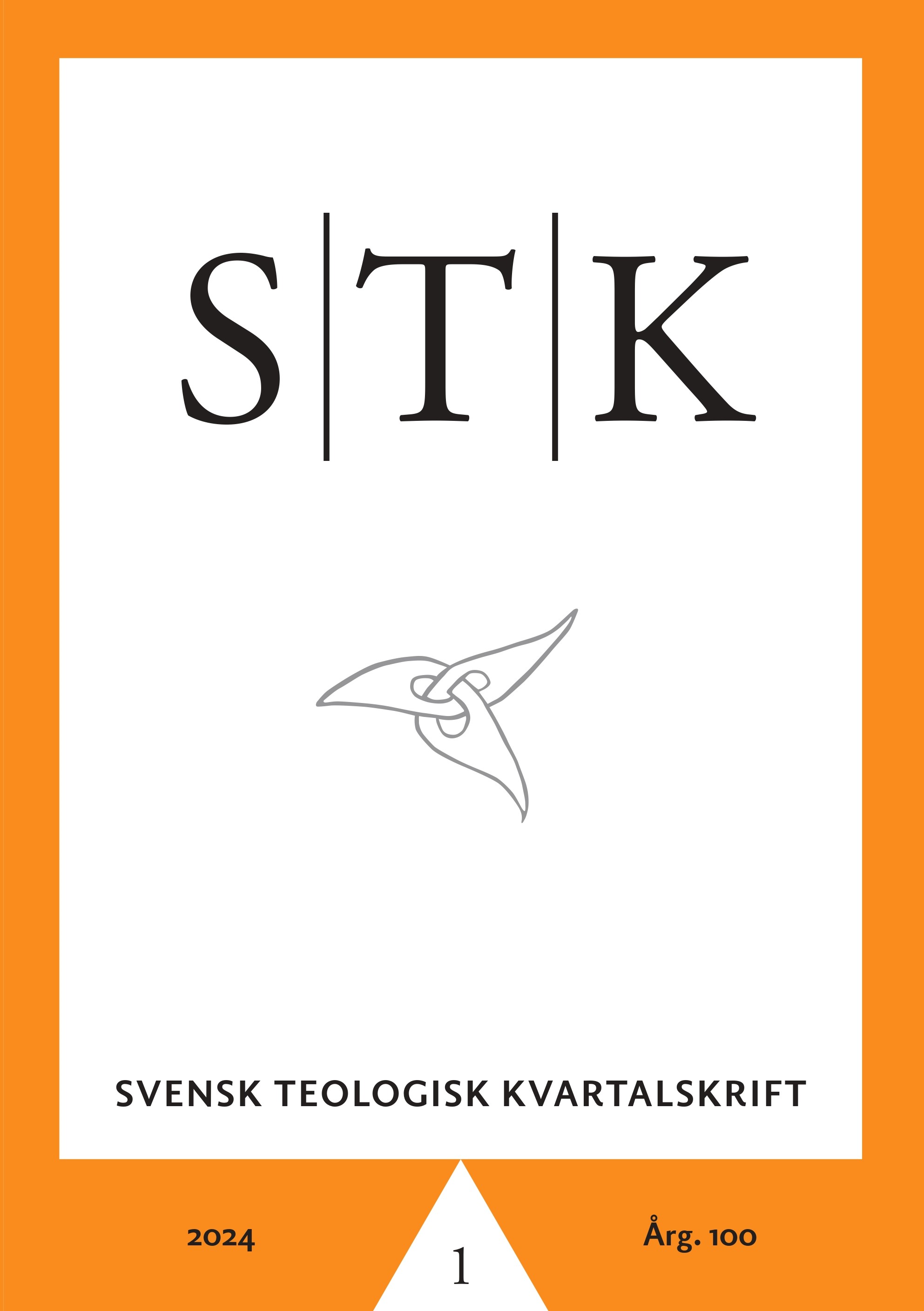Carnaps fråga och teologins gåta
Tros- och livsåskådningsvetenskap som verklighetslära
DOI:
https://doi.org/10.51619/stk.v100i1.26100Abstract
In this text, I develop my earlier argument on the possibility of a non-confessional theological inquiry, and hence an intellectual practice devoted to the classical theological problems that begin with reason rather than faith, at secular universities in Sweden, a country with no state church and many different religions and denominations. I answer the criticism against this tentative proposal by returning to Rudolf Carnap's discussion of Friedrich Gogarten's theological tractate Die religiöse Entscheidung (1921). The logical positivist was amazed that Gogarten was so boldly staking out a new area of reality, and he wanted to know how he could see what Gogarten saw. "Gogarten can rightly say that I am blind", Carnap wrote, and "my non-seeing would not be an objection for him, but would only show that I am not (yet) one of the elect". But Carnap continued by stating that this would lead to a relativistic outcome that he could not assent to due to his "belief in reason" (Vernunftglaube). Accepting Carnap's criticism of relativism but deconstructing the difference between what he called the question (die Frage) and the puzzle or mystery (das Rätsel), I show how theological questions still emerge in the sciences and that there is a link between questions and mysteries. Insisting that Carnap's own belief in reason is a good indication of the relation between die Frage and das Rätsel, and hence between science and what the logical positivist would describe as metaphysics, I argue that systematic theology not only has a prominent and vital role at a secular university, as the science that investigates shapes and discusses theological discourses wherever they appear. It also asks (and might even give tentative answers to) the problematic question of the truth of these discourses, since I show that Carnap's, ultimately Diltheyan, attempt to differentiate understanding (verstehen) from explanation (erklären), cannot hold. Theology is, in this sense, not only an attempt to describe and explain how different religions think. It is also a critical and philosophical discussion of these thought systems' meaning and truth content. Theology thereby reminds the university of the interconnection between science and mystery, truth and meaning.
Downloads
Publicerad
Nummer
Sektion
Licens
Copyright (c) 2024 Mårten Björk

Detta verk är licensierat under en Creative Commons Erkännande-Ickekommersiell-IngaBearbetningar 4.0 Internationell-licens.


